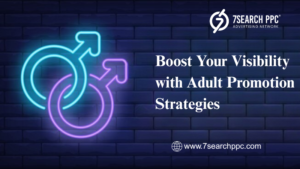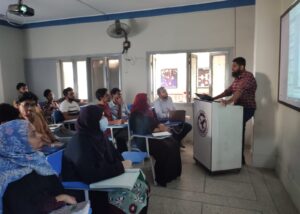So, You’re About to Become an ISO 14001 Internal Auditor? Here’s What You Need to Know
Picture this: you’re sitting at your desk, sipping coffee, when your manager drops a bombshell—you’ve been chosen to train as...

Picture this: you’re sitting at your desk, sipping coffee, when your manager drops a bombshell—you’ve been chosen to train as an ISO 14001 internal auditor. Exciting? Maybe. Intimidating? Definitely. You might be wondering, What does this even mean? Am I ready to take on this role? Don’t worry. This guide is here to walk you through what ISO 14001 internal auditor training is all about, why it matters, and how it can make you a key player in your company’s environmental management system (EMS). Let’s break it down in a way that feels less like a textbook and more like a conversation over coffee.
What’s ISO 14001, Anyway?
Before we get into the nitty-gritty of auditing, let’s set the stage. ISO 14001 is an international standard for environmental management systems. It’s like a playbook for companies to minimize their environmental footprint—think reducing waste, conserving energy, or ensuring compliance with regulations. If your company is ISO 14001 certified, it’s already committed to being greener. Your job as an internal auditor? Make sure the company sticks to that commitment.
Sounds simple, right? Well, not quite. Auditing isn’t just about checking boxes; it’s about digging deep, asking questions, and ensuring the system works as promised. That’s where the training comes in. It’s your crash course in becoming the company’s environmental watchdog—without the cape, but with plenty of responsibility.
Why You? The Role of an Internal Auditor
You might be thinking, Why me? I’m not an environmental expert! Here’s the thing: you don’t need to be. ISO 14001 internal auditor training is designed to take regular employees—like you—and turn them into skilled auditors who can evaluate the EMS with a fresh perspective. Your role is to spot gaps, identify risks, and help the company improve its environmental performance. It’s less about knowing every environmental regulation and more about learning how to ask the right questions.
Think of yourself as a detective. You’ll be looking for clues that the EMS is working—or not. Maybe the recycling program isn’t being followed, or perhaps a department forgot to document its waste disposal process. Your training will teach you how to find these issues and suggest fixes without ruffling too many feathers. It’s a balancing act, but a rewarding one.
What Does the Training Involve?
So, what can you expect when you sign up for ISO 14001 internal auditor training? Most programs are a mix of theory, practical exercises, and real-world scenarios. Here’s a quick rundown of what you’ll likely cover:
- Understanding ISO 14001: You’ll get a deep dive into the standard’s requirements, from environmental policies to operational controls. It’s like learning the rules of a game before you start playing.
- Audit Principles: You’ll learn the basics of auditing—how to plan, conduct, and report on an audit. This includes everything from interviewing colleagues to reviewing documents.
- Practical Exercises: Expect role-playing scenarios where you practice auditing. You might be handed a mock EMS and asked to spot non-conformities (fancy term for “things that aren’t right”).
- Reporting and Follow-Up: You’ll learn how to write clear, actionable reports and suggest improvements without sounding like you’re pointing fingers.
Why This Training Feels Like a Big Deal
Let’s be real: the idea of auditing can feel daunting. You’re not just checking paperwork; you’re holding your company accountable for its environmental promises. That’s a lot of pressure! But here’s the flip side: it’s also incredibly empowering. You’re not just doing a job; you’re contributing to something bigger—helping your company reduce its carbon footprint, save resources, and maybe even inspire others to care about the planet.
I remember talking to a friend who went through this training. She was nervous at first, thinking she’d have to memorize every clause of ISO 14001. But halfway through, she realized it was more about curiosity and problem-solving than being a know-it-all. By the end, she was excited to start auditing, knowing she was making a tangible difference. That could be you.
The Skills You’ll Gain (and Why They’re Awesome)
ISO 14001 internal auditor training isn’t just about learning the standard—it’s about building skills that make you better at your job, period. Here are a few you’ll pick up:
- Attention to Detail: You’ll learn to spot inconsistencies that others might miss, like a missing record or a process that’s not quite right.
- Communication: Auditing means talking to people—sometimes about things they’ve done wrong. You’ll learn how to ask tough questions with tact.
- Problem-Solving: Finding issues is one thing; coming up with practical solutions is another. You’ll get good at thinking on your feet.
- Confidence: There’s something about mastering a new skill that gives you a boost. You’ll walk away feeling ready to tackle challenges.
These skills aren’t just for auditing. They’re transferable to other parts of your work—whether you’re managing projects, leading a team, or just trying to stay organized in a chaotic world.
A Quick Tangent: Why Environmental Audits Matter in 2025
Let’s zoom out for a second. It’s 2025, and environmental issues are front and center. From climate change to new regulations, companies are under more scrutiny than ever to prove they’re doing their part. ISO 14001 audits aren’t just about compliance—they’re about staying competitive. Customers, investors, and even employees want to work with businesses that care about the planet. Your role as an auditor helps your company walk the talk.
Plus, there’s a personal side to this. Think about the last time you saw a news story about pollution or deforestation. Frustrating, right? As an auditor, you’re not just sitting on the sidelines—you’re helping your company make choices that matter. It’s a small but meaningful way to contribute to a bigger cause.
How to Prepare for Your Training
Ready to jump in? Here are a few tips to get the most out of your ISO 14001 internal auditor training:
- Brush Up on the Basics: If your company already has an EMS, take a peek at its policies or procedures. It’ll give you a head start.
- Come with Questions: Training is your chance to clarify doubts. Wondering how to handle a non-compliant department? Ask!
- Embrace the Role-Play: Those mock audits might feel awkward, but they’re the best way to practice without real-world consequences.
- Take Notes: You’ll be hit with a lot of info. Jot down key points to reference later.
Oh, and don’t stress about being perfect. Auditing is a skill you’ll refine over time. The training is just the starting line.
A Few Challenges (and How to Handle Them)
No one said auditing was all sunshine and rainbows. You might run into pushback from colleagues who don’t love being scrutinized. Or you might uncover a major issue that’s tricky to fix. Don’t panic. Your training will give you tools to navigate these situations, like how to communicate findings diplomatically or escalate issues when needed.
And if you ever feel stuck? Lean on your training materials, talk to a mentor, or check out resources like the International Organization for Standardization’s website. You’re not in this alone.
Wrapping It Up: You’ve Got This
Becoming an ISO 14001 internal auditor is a big step, but it’s one you’re ready for. The training will give you the knowledge, skills, and confidence to make a real impact. You’ll be helping your company stay true to its environmental goals while picking up skills that make you a stronger employee—and maybe even a prouder one.
So, take a deep breath, grab another coffee, and get ready to step into your new role. You’re not just auditing paperwork; you’re helping shape a better, greener future. How cool is that?





